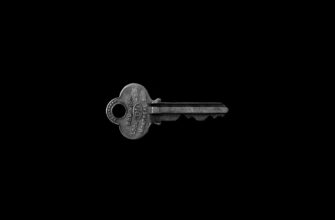🎮 Level Up with $RESOLV Airdrop!
💎 Grab your free $RESOLV tokens — no quests, just rewards!
🕹️ Register and claim within a month. It’s your bonus round!
🎯 No risk, just your shot at building crypto riches!
🎉 Early birds win the most — join the drop before it's game over!
🧩 Simple, fun, and potentially very profitable.
- The Rising Threat: Why Your Funds Need Protection Now
- How Hackers Target Your Money: Common Attack Vectors
- 10 Low-Cost Strategies to Secure Funds from Hackers
- Essential Free Tools for Enhanced Financial Security
- Building a Security-First Mindset: Habits That Cost Nothing
- FAQs: Securing Funds from Hackers on a Budget
- Final Thoughts: Security Doesn’t Require Deep Pockets
The Rising Threat: Why Your Funds Need Protection Now
Cybercriminals stole over $10 billion in cryptocurrency alone in 2023 – and traditional bank accounts are equally vulnerable. As hacking techniques evolve, protecting your money doesn’t require a fortune. This guide reveals practical, low-cost methods to secure funds from hackers without draining your resources. Whether you’re an individual or small business owner, these strategies create formidable barriers against digital theft.
How Hackers Target Your Money: Common Attack Vectors
Understanding hacker tactics is your first defense. Cybercriminals primarily use:
- Phishing scams: Fake emails/texts mimicking banks or payment apps
- Malware infections: Keyloggers capturing login credentials
- Unsecured Wi-Fi snooping: Intercepting data on public networks
- Credential stuffing: Using leaked passwords across accounts
- SIM swapping: Hijacking phone numbers to bypass 2FA
10 Low-Cost Strategies to Secure Funds from Hackers
Implement these affordable measures immediately:
- Enable Multi-Factor Authentication (Free)
Require 2+ verification steps for financial logins using authenticator apps like Google Authenticator or Authy instead of SMS. - Password Manager Investment ($10-$40/year)
Tools like Bitwarden (free) or 1Password generate and store uncrackable passwords, eliminating reuse risks. - Virtual Credit Cards for Online Payments (Free)
Services like Privacy.com create disposable card numbers with spending limits, shielding your real accounts. - Freeze Your Credit Reports (No Cost)
Block unauthorized credit applications via freezes at all three bureaus (Experian, Equifax, TransUnion). - Encrypted Email for Financial Communications (Free)
Use ProtonMail or Tutanota for sensitive correspondence, preventing interception. - Browser Isolation Technique (Free)
Open banking sites in “private/incognito” windows to prevent cookie theft. - DNS Filtering Services ($20-$50/year)
Solutions like NextDNS block malware-hosting domains before they load. - Biometric Locks on Devices (Free)
Replace PINs with fingerprint/face ID on phones and laptops. - Transaction Alert Systems (Free)
Activate real-time SMS/email notifications for all account activity. - Regular Software Updates (Free)
Patch operating systems and apps weekly to fix security holes.
Essential Free Tools for Enhanced Financial Security
Leverage these zero-cost resources:
- Have I Been Pwned: Check password breach exposure
- Signal Private Messenger: Encrypted communication
- KeePassXC: Open-source password vault
- Malwarebytes Free: On-demand malware scanning
Building a Security-First Mindset: Habits That Cost Nothing
Behavioral changes dramatically reduce risk:
- Verify sender email addresses before clicking links
- Never discuss finances on public Wi-Fi without VPN
- Review bank statements weekly for anomalies
- Shred physical documents with account details
- Use unique security questions (not mother’s maiden name)
FAQs: Securing Funds from Hackers on a Budget
Q: Can I really protect my money without expensive services?
A: Absolutely. Core protections like 2FA, credit freezes, and password managers cost little or nothing yet block 99% of common attacks.
Q: What’s the single most effective low-cost measure?
A: Multi-factor authentication. It prevents 80% of account takeovers according to Microsoft’s research.
Q: Are password managers safer than memorizing passwords?
A: Yes. Humans reuse weak passwords; managers create and store 20+ character randomized codes unique to every site.
Q: How often should I update security practices?
A: Review settings quarterly. Enable new features like “passkeys” (passwordless login) as they become available.
Q: Can hackers drain insured bank accounts?
A> While FDIC insurance covers bank failures, it doesn’t guarantee reimbursement for hacking. Timely fraud reporting is critical.
Final Thoughts: Security Doesn’t Require Deep Pockets
Protecting your funds from hackers hinges on consistent implementation of basic safeguards, not expensive solutions. By combining free tools like 2FA and credit freezes with low-cost investments in password managers and DNS filtering, you create layered defenses that make theft exponentially harder. Start with one strategy today – your financial safety is worth the minimal effort.
🎮 Level Up with $RESOLV Airdrop!
💎 Grab your free $RESOLV tokens — no quests, just rewards!
🕹️ Register and claim within a month. It’s your bonus round!
🎯 No risk, just your shot at building crypto riches!
🎉 Early birds win the most — join the drop before it's game over!
🧩 Simple, fun, and potentially very profitable.








